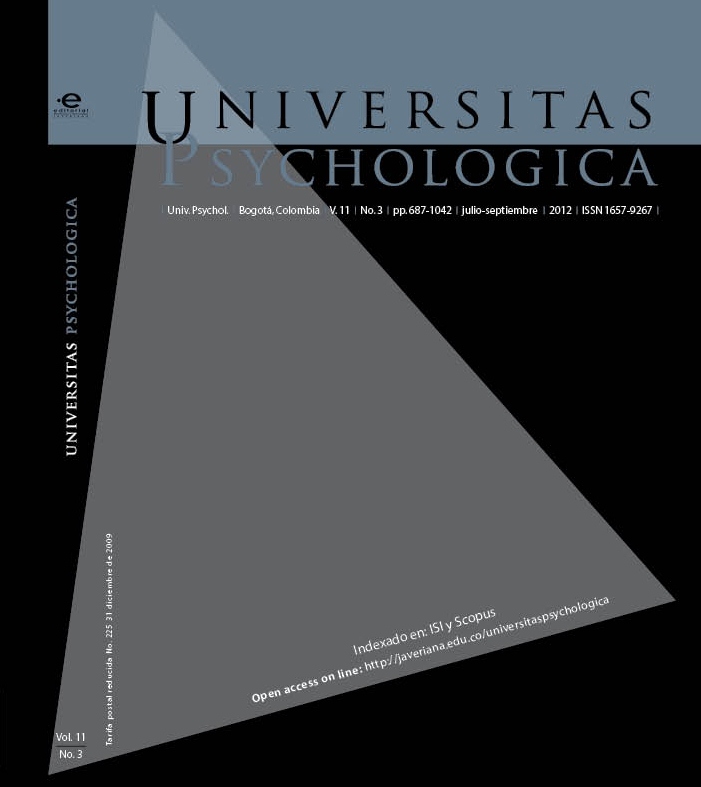Abstract
Pervasive Developmental Disorders (PDDs) are severe and pervasive disturbances affecting central areas of development (DSM-IV-TR). It is proponed that the perigestational period encompasses a number of risk factors that influence and affect normal fetal development. The aim of this paper was to study the presence of risks during the perinatal development, considering the responses of 93 mothers of children with a pervasive developmental disorder –autistic disorder, Asperger disorder and PDD-NOS– to a structured self-report. We found significant differences among the PDD groups in the pregestational – malnutrition/anorexia and hypertension– , in the perigestational – malnutrition/anorexia and problems with the amniotic fluid–, and in the psychosocial –unwanted gender baby– dimensions from the analysis of the responses.
This journal is registered under a Creative Commons Attribution 4.0 International Public License. Thus, this work may be reproduced, distributed, and publicly shared in digital format, as long as the names of the authors and Pontificia Universidad Javeriana are acknowledged. Others are allowed to quote, adapt, transform, auto-archive, republish, and create based on this material, for any purpose (even commercial ones), provided the authorship is duly acknowledged, a link to the original work is provided, and it is specified if changes have been made. Pontificia Universidad Javeriana does not hold the rights of published works and the authors are solely responsible for the contents of their works; they keep the moral, intellectual, privacy, and publicity rights. Approving the intervention of the work (review, copy-editing, translation, layout) and the following outreach, are granted through an use license and not through an assignment of rights. This means the journal and Pontificia Universidad Javeriana cannot be held responsible for any ethical malpractice by the authors. As a consequence of the protection granted by the use license, the journal is not required to publish recantations or modify information already published, unless the errata stems from the editorial management process. Publishing contents in this journal does not generate royalties for contributors.


